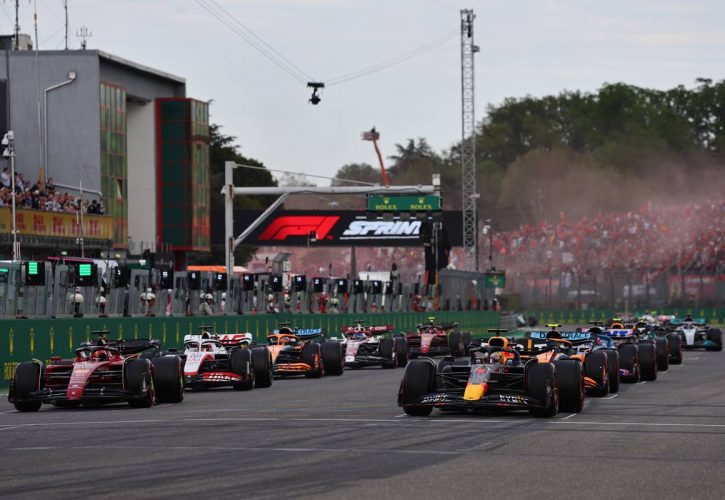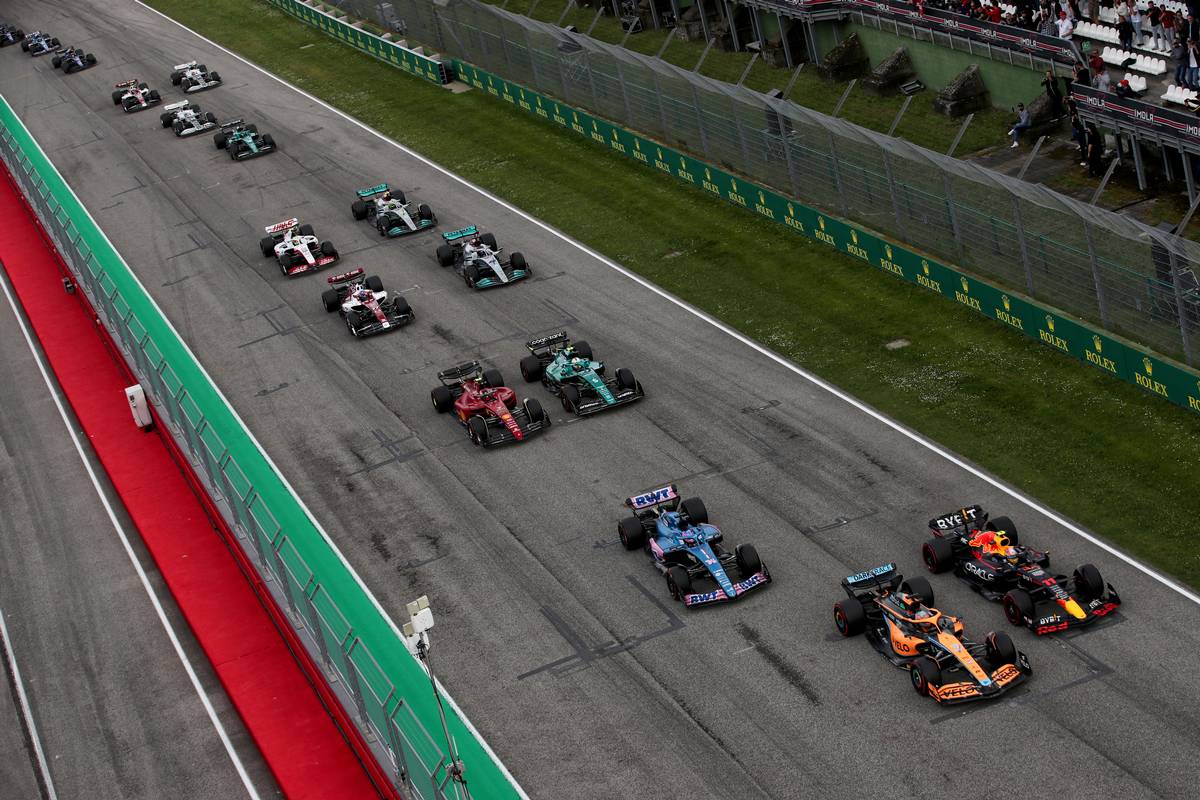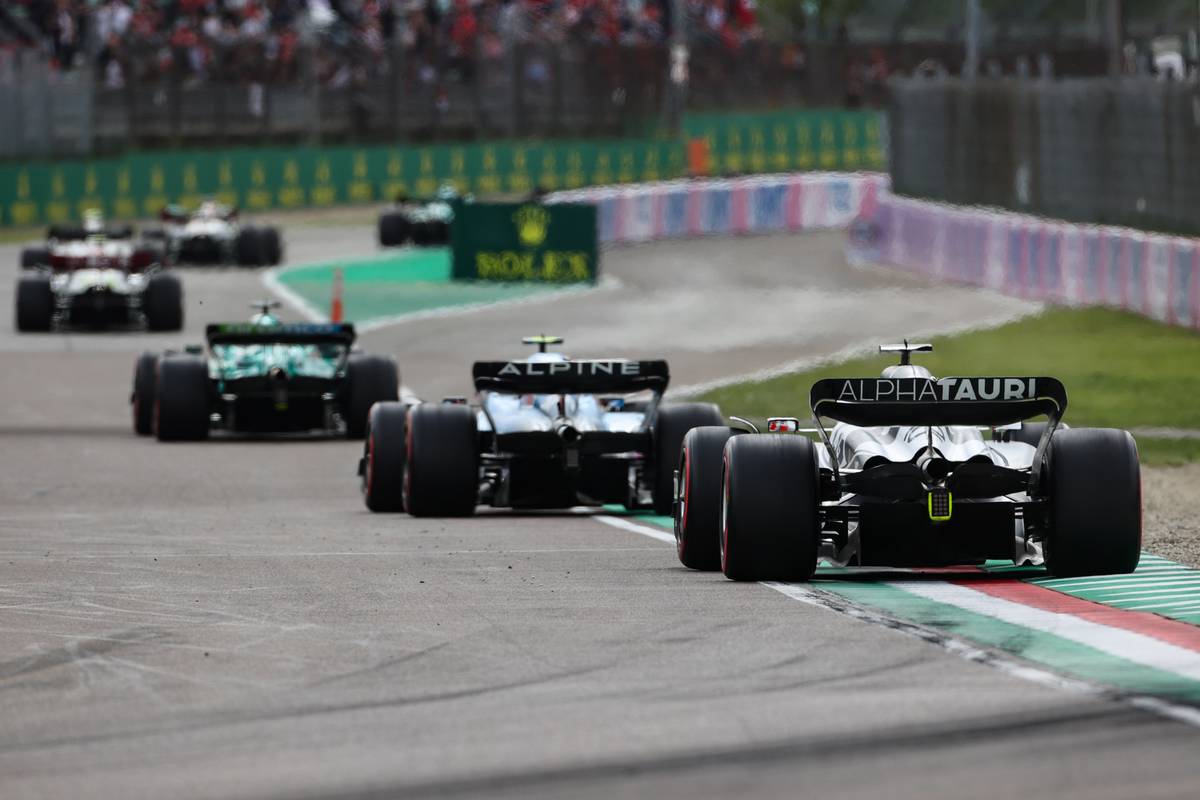
Formula 1's teams unanimously agreed on Tuesday to boost the number of sprint events to six in 2023, but the FIA has put the brakes on the plan.
Members of the F1 Commission convened for a meeting in London to discuss various topics on the sports' agenda.
But the super majority of 26 votes from 30 that was required to pass the sprint expansion was not reached, as F1's governing body which holds 10 votes was unwilling to support the plan, for now.
In its statement issued after the meeting, the FIA justified its negative vote by its desire to further evaluate the impact of an increase in sprint events on its "trackside operations and personnel".
"With the first of three sprint events of the 2022 season popular with fans and stakeholders last weekend at the Emilia Romagna Grand Prix, Formula 1 and the teams were supportive of an extension to six sprint events for the 2023 season, running with the same format as in 2022.
"While supporting the principle of an increased number of sprint events, the FIA is still evaluating the impact of this proposal on its trackside operations and personnel, and will provide its feedback to the Commission."

According to sources, FIA president Mohammed Ben Sulayem who chaired the meeting immediately made clear that the governing body wanted a financial contribution from Formula 1 to green-light the sprint expansion.
That demand was reportedly not well received by several parties around the table, which prompted the FIA to agree to a proper evaluation of the impact of the extra sprint races on its personnel, at which point it may reconsider its position.
Also on the meeting's agenda were talks related to F1's next power unit and aerodynamic regulations and the targets that the latter must achieve.
Because F1's 2026 power unit is set to lose the costly MGU-H element, it is feared that engines could suffer a significant drop in power output which in turn could substantially impact the straight-line performance of F1's heavy and draggy cars.
The targets are therefore to reduce drag significantly to offset any reduction in power, and to improve sustainability and efficiency, to reduce car dimensions, to continue the path towards the standardisation or simplification of strategically-selected components, and to maintain and improve closer racing.

The F1 Commission unanimously approved an update to the 2023 Technical Regulations that will mandate the use of helmet cameras for all drivers from next season.
The Commission's members also agreed to trial in 2023 a reduction of the tyre allocation from 13 sets to 11.
Regarding rising costs and inflation pressures on F1 teams and on their budget caps, it was agreed that F1 Financial Working Group will be asked to discuss the matter and submit propositions to help alleviate the teams' burden over both the short and the long term.
No final decision has yet been reached on the venue that will replace the Russian Grand Prix on this year's calendar, but the idea of Singapore holding a double header is gaining traction.
Keep up to date with all the F1 news via Facebook and Twitter






